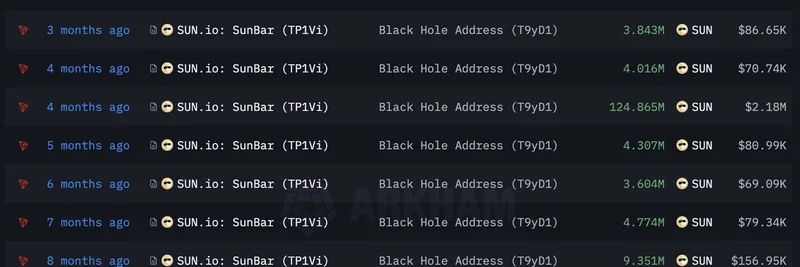Pepe Dollar (PEPD) is a meme-powered token aiming to fuse internet culture with practical finance. Framed as a playful critique of fiat inflation and debt, PEPD’s pitch is simple: wrap meme virality around real utility, so the “meme economy” can actually move money.
Network and contract clarity
- Chain: Ethereum (with a focus on L2-friendly scaling and infrastructure).
- Contract (per this article’s focus): 0x70b5fa2c02a63b1a90d23bd8166fa81614b6d463.
- Important verification note: Some sources also reference an Ethereum address 0x8745a1eac4e22454fd5b9386995fae949221042e for PEPD, and there has been confusion around BNB Chain lookalikes. To avoid counterfeit contracts, always cross-check the address via the official site and major trackers before transacting:
- Official site: pepedollar.io
- CoinMarketCap: coinmarketcap.com/currencies/pepe-dollar
- Official X: x.com/PepeDollarETH
If a token address on a DEX or scanner doesn’t match what’s published on official channels, treat it as suspicious.
What makes PEPD different: the Pay‑Fi meme economy
PEPD positions itself as a “Pay‑Fi” project: everyday payments plus DeFi features, wrapped in meme culture.
- Payments and QR checkout: Build simple crypto payments (e.g., QR code in-store) on top of Ethereum infrastructure.
- DeFi credit scoring: Introduce reputation-based borrowing to make meme tokens more than pure speculation.
- Micro‑loans with staking: Stake PEPD to access or underwrite micro‑credit features.
- Meme minting platform: Pepedollar.fun offers a no‑code dApp to mint meme tokens, auto-deploy contracts, attach bonding curves, and hook into DEX liquidity—spawning “micro‑economies” inside the PEPD universe.
- Staking rewards: Incentivize longer-term holding and community participation.
- GameFi hooks: Play-to-earn and gamified engagement as additional distribution and activity loops.
Tokenomics in brief
- Fixed supply: About 3.695–3.6951 billion PEPD (a satirical nod to U.S. national debt figures).
- “Federal Burn” at launch: ~29% of supply slated for permanent burn, symbolizing pushback against inflationary fiat systems.
- No developer tax or backdoor functions: Team communications emphasize transparent tokenomics and absence of stealthy fee mechanics.
Presale highlights and market status
- Presale structure: Multiple stages with transparent pricing.
- Example pricing cited: ~$0.0047 (Stage 1), ~$0.006495 (Stage 2).
- Projected exchange launch price: ~$0.03695 (indicative, not guaranteed).
- Fundraising: Reports noted over $1.4M raised by Stage 2, with interest from both Ethereum and BNB communities and some whale participation.
- Listings: The plan has been to debut on DEXs first, with aspirations for later CEX listings (including big names). As always, timelines and venues can change—verify via official announcements.
None of the above is financial advice. Presale and listing prices can deviate significantly from projections.
Where and how to trade PEPD
When you’re ready to research or trade, compare multiple venues and always verify the contract address:
- GMGN.AI (analytics and trading): https://gmgn.ai/eth/token/fV1R5sZ5_0x70b5fa2c02a63b1a90d23bd8166fa81614b6d463
- Uniswap (DEX): Start from uniswap.org and paste the verified contract address before swapping.
- Track markets and listings: CoinMarketCap – Pepe Dollar
Tip: If you don’t see the exact contract address above on a venue’s token selector, do not proceed. Copy the address from official channels to avoid imposters.
Cross‑chain vision and ecosystem growth
While PEPD’s base is Ethereum, the project has expressed ambitions for multi‑chain reach (e.g., BNB Chain, Arbitrum, Polygon, Optimism) to broaden liquidity and accessibility. The no‑code meme‑minting dApp aims to pull creators and communities into the PEPD orbit, encouraging experimentation and user-generated micro‑tokens alongside staking and payments.
Community and official resources
- Website: pepedollar.io
- Meme minting dApp: pepedollar.fun
- X (Twitter): x.com/PepeDollarETH
- Telegram: t.me/pepedollarcommunity
- CoinMarketCap: coinmarketcap.com/currencies/pepe-dollar
Risks and reminders
- Contract verification: Double‑check the token address via official channels before buying.
- Volatility: Meme tokens are highly speculative; prices can swing sharply.
- Roadmap risk: Payment rails, credit scoring, and cross‑chain rollouts are ambitious and may face delays or changes.
- Security: Watch for honeypots, excessive taxes, or fake pools on DEXs. Use reputable aggregators and scanners.
This article is for informational purposes only and is not financial advice. Always do your own research and consider consulting a licensed professional before investing.




